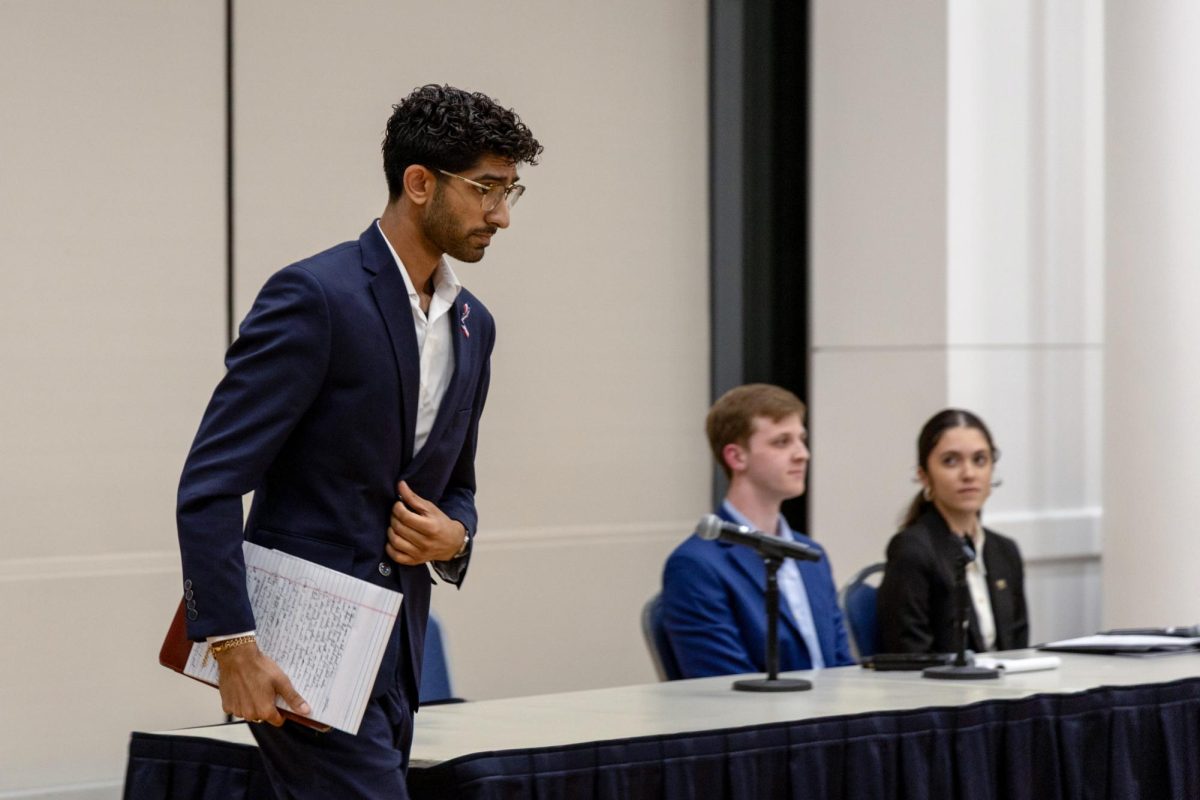GW overturned a key part of its sexual assault policy last week, the latest change in a lengthy clash across departments and offices to create fair rules for both victims and the accused.
Survivors are no longer limited to a time frame when formally reporting a sexual assault, which had been one of the many points of contention during a two-year struggle to reform GW’s policy.
For GW, the stakes have been high. The first round of policy changes was prompted by a 2011 request by the Department of Education to strengthen sexual violence codes on college campuses. It also came amid a series of lawsuits at top universities like Vassar College and University of North Carolina for allegedly mishandling sexual assault cases.
Student Association Executive Vice President Kostas Skordalos, who campaigned on sexual assault awareness last year, said he thinks administrators are more open to acknowledging sexual assault as a widespread problem than when he first came to GW.
“It’s definitely not a perfect dialogue, but it’s progressed,” he said. “I think we’re always looking for that progress, and we want more and more people to want to talk about this issue and not just sweep it under the rug.”
Much of the policy debate – particularly within the Faculty Senate’s 14-member ethics committee last year – centered on the proof that a victim must provide before an accused perpetrator is handed a judicial punishment.
Theodore Barnhill, a professor of finance, said GW should make clear that victims must show “substantial evidence” because the consequences of being found guilty of sexual assault are so severe. Students could face suspension or expulsion while professors could lose their tenure.
In a letter to the Faculty Senate, Barnhill predicted a sharp increase in reports of sexual assault, inevitably leading to some “sham trial abuses.”
The process toward getting to the policy was also messy, he wrote, because the committee had not interviewed “either plaintiffs or defendants in sexual harassment and violence cases to determine how well they believe the process has worked and what changes may be needed.”
Before the federal recommendations in 2011, many colleges required “clear and convincing evidence” that an assault occurred before moving forward with hearings. But new standards are lower, requiring “substantial evidence showing that is more likely than not” to have happened.
Colleges that don’t comply with anti-discrimination law could lose all federal funding, including Pell grants and other scholarship programs, or face lawsuits.
But those accused have also initiated lawsuits.
The University procedures were the target of legal action in 2011, when a then-freshman sued GW for $6 million in damages, saying he was wrongfully found guilty of sexual assault. He claimed the University refused to consider relevant evidence that proved him innocent and created a “biased and one-sided process” against men. The lawsuit was settled out of court.
Three students at different universities filed federal lawsuits this year claiming campus officials rushed through judicial proceedings and assumed they were guilty.
Attorneys from the Department of Education found that GW’s policy – last amended in 2005 – failed to measure up to its benchmarks. The department requires policies to explain what kinds of actions are considered sexual harassment and also wanted GW to make clear that mediation between parties was not an option.
The tension between giving equal treatment to alleged perpetrators and to victims, whether they are students, faculty or staff, has also played out in guidelines regarding anonymity.
The federal government calls on universities to allow survivors to remain anonymous as long as possible, but schools must balance that standard with letting the accused understand the exact allegations brought against them.
GW’s policy initially included a two-year time window to file formal complaints. Officials said the limit was meant to encourage victims to come forward, as cases are nearly impossible to resolve after months or years have passed.
“The concern is, if people wait too long and students graduate, witnesses disappear, it’s very hard to investigate, to do a fair investigation of something if it goes on too long,” University President Steven Knapp said.
The change also came after student leaders lashed back at the policy.
Nick Gumas, a senator in the SA, wrote a letter in the spring calling on the University to improve sexual assault education and abolish time limits for victims to file formal complaints. Nineteen senators signed the letter.
“Every time the SA passes a resolution or says something, President Knapp isn’t running to go fix that problem. But I think what made the issue of sexual assault unique among other issues was that people were paying attention to it,” Gumas said.






